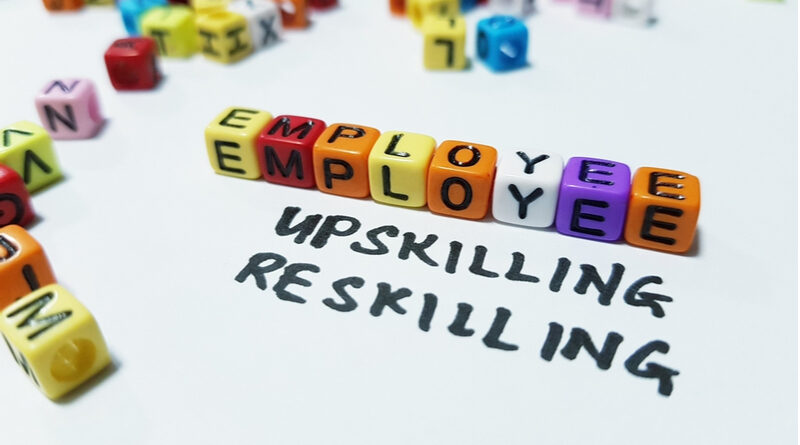Only 1 in 20 workers think their employer prioritizes upskilling
According to new data, only one out of every ten workers believes their employer prioritizes skill development, despite the fact that the vast majority of workers wish to improve their abilities.
According to a poll of 1,000 UK professionals done by Resource Solutions, while 97% of respondents wanted to improve their skills, only 5% stated their employer thought it was necessary.
Although a third (34%) of respondents felt left behind by the epidemic because it altered the skills they needed to do their jobs properly, 40% believed that employers either put upskilling low on their priority list or did not consider it at all.
Furthermore, half of those polled (51%) are concerned that automation will replace some or all of their occupations, with the number rising to 63 percent among directors and C-suite executives.
The epidemic, said to Norma Gillespie, CEO of Resource Solutions, has brought automation concerns to the forefront. “The Covid-19 epidemic was a catalyst for change because it accelerated the digital agenda, which, combined with economic uncertainty, increased employee fears about automation,” she added.
Gillespie urged firms to make education and training a top priority in order to develop a more engaged workforce. “It’s critical to break down obstacles to upskilling, most notably a lack of time,” she added, “otherwise organizations risk losing their personnel to competitors who do.”
“Organisations must identify the skills required and the skills transferable within their employees and invest heavily in reskilling and upskilling strategies. Not only will this meet the clear desire and expectation from staff at every stage in their career, but it’s also vital in order to stay competitive within the market,” she said.
Career advancement was cited by age groups as a factor in their readiness to upskill in their work, with 33% indicating this. However, one-fifth of respondents (20%) believed that upskilling possibilities were only available to individuals in management positions. In addition, 14% of respondents felt that upskilling possibilities had decreased.
According to the study, millennials are more likely than workers in their 50s and older to claim that hurdles prohibit them from upskilling: 16% of millennials say that nothing prevents them from learning a new skill, compared to 32% of workers in their 50s and older.
The current skills gap, according to Paul Warner, director of strategy and business development at the Association of Employment and Learning Providers (AELP), is a big concern for companies, and he asked the government to help firms upskill their personnel.
“Although we welcome recent moves to open up the level 3 adult offer to allow those in low-pay work to access free qualifications regardless of any prior qualifications, we believe this should be extended to allow more people to upskill while working,” he said.
“More fundamentally, the way in which the adult education budget is allocated currently leaves gaps in provision and should be reformed to ensure we have a system which puts learners first,” said Warner.

